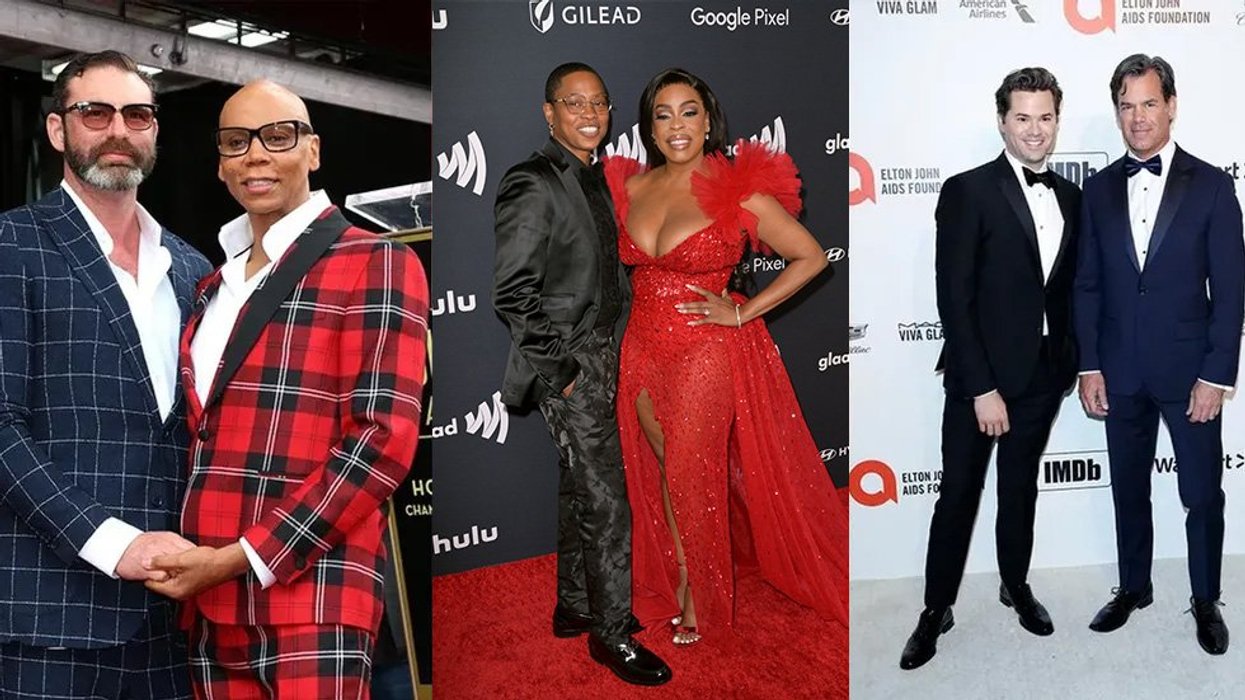Last week, Martin Luther King tributes were taking place across the nation. And the spirit of MLK and the courageous acts of our foremothers and forefathers of the civil rights movement are etched indelibly in many of our hearts.
But the civil rights movement of Martin Luther King’s era of the 1960’s, many would say, is dying a slow and necessary death.
And for many African Americans of younger generations, who are now the beneficiaries of the racial gains from the Movement, feeling the Movement’s slow death is like a welcoming boulder gradually being lifted from their shoulders, especially for those who are lesbian, gay, bisexual, transgender and queer.
With many key African American organizations and institutions of the civil rights movement of the 1960’s still resistant to address this generation’s outwardness about their sexual orientations and gender expressions as a civil rights issues, these organizations and institutions have not only lost their mantle as part of a prophetic justice movement for this day and age, but many of our present day key African American organizations and institutions of the Movement have also lost the moral high ground that was once so easily associated with them.
For example, the bedrock institution in the African American community, we all know by now, is the Black church. And it was also the bedrock of the civil rights movement. In March of 2010, African American Princeton’s Eddie Glaude Jr. published an obituary for the black church in the Huffington Post titled, “The Black Church is Dead.” Glaude talked about several of the problems facing the African American community, but nowhere in his piece did he talk about anti-gay ministers and homophobic congregations.
According to the PEW Research Center’s Forum on Religion and Public Life, 87 percent of African Americans identify with a religious group and 79 percent say that religion is very important in their lives. The Pew report also showed that since 2008, African-American Protestants are less likely than other Protestant groups to believe that LGBTQ people should have equal rights. And since hot-button issues like gay adoption and marriage equality have become more prominent, support for LGBTQ rights among African-American Protestants has dipped as low as 40 percent.
A groundbreaking study in July 2010 came out titled, “Black Lesbians Matter” examining the unique experiences, perspectives, and priorities of the Black Lesbian Bisexual and Trans community. One of the key findings of the survey revealed that there is a pattern of higher suicide rates among black LBTs. Scholars have primarily associated these higher suicide rates with one’s inability to deal with “coming out” and the Black Church’s stance on homosexuality.
But with various pockets within a community homophobic, clerics closeted and a church on the “down-low” about sexuality it cannot save itself from itself. And perhaps as many of us LGBTQ Christians in the Black Church have known but Glaude finally stated it: “The Black Church is Dead.”
But with a dead church so, too, will follow important historic organizations that were birthed out of the civil rights movement and headed by black homophobic ministers.
One example is the Southern Christian Leadership Conference (SCLC).
More on next page...
\\\
(continued)
“We should’ve closed it down years ago,’’ Andrew Young, who worked alongside Martin Luther King Jr., said after Rev. Bernice King announced to the Atlanta Journal Constitution this week that she will not be taking her oath as SCLC’s president. “I saw this as a lost cause a long time ago.’’
But many in the LGBTQ community felt, with Rev, Bernice King at the helm of the organization, queer justice was certain to be a lost cause.
In 2009, Rev. Bernice King was bestowed the honor to be the eighth president and first women to head SCLC, co-founded by her father, Rev. Dr. Martin Luther King, Jr. While it isn’t clear if Bernice King was a legacy pick for SCLC, it is, however, very clear to many of us in our LGBTQ communities that she would not be carrying out her father’s legacy.
And having been rumored for years, on the “chitlin’ circuit,” to be a lesbian, her track record concerning LGBTQ civil rights has been less than humane and antithetical to the legacies of both her parents.
For example, Rev. Bernice King’s most audacious sign of desecrating her father’s legacy was the December 2004 march titled, “Stop the Silence,” promoting an anti-gay agenda.
Beginning the protest march by lighting a torch at her father’s grave site and then passing it on to her spiritual mentor and the march organizer, Bishop Eddie Long of New Birth Missionary Baptist Church, who has recently been embroiled in a sex scandal for molesting pubescent boys from his church, whom he calls “spiritual sons,” King stated that “I know in my sanctified soul that he (Dr. King) did not take a bullet for same-sex marriage.” Therefore, given the homophobic vitriol Rev. Bernice King has spewed out over the years, the LGBTQ community is always braced to see what next she’ll say and do, and especially if given the bully pulpit she would have had as president of SCLC.
Comprised mostly of conservative clergy and parishioners, our churches and historic justice institutions remain in an intentional time warp. With its refusal to speak on present-day issues not only plaguing the African American community but plaguing all Americans, these churches and organizations exist as a visiting museum tethered to the 1960’s civil rights era rather than exist as an organization faced toward the challenges of today.
Like the many who gathered last week to commemorate Martin Luther King Day, I, too, am committed to the teachings of Martin Luther King, Jr.
I not only miss King’s wisdom, I miss the sound of his voice, the things he said with that voice, and the choir that resounded within him with that voice.
King once told a racially mixed audience that “Eventually the civil rights movement will have contributed infinitely more to the nation than the eradication of racial injustice.”
If King were alive today he would want us to look at homophobia.
Follow SheWired on Twitter!
Follow SheWired on Facebook!
Be SheWired's Friend on MySpace!


























































































































